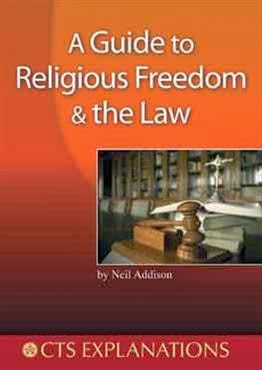An article in this weeks "Observer" Newspaper says that the European Commission has told the British Government that exemptions for Religious Employers in the Employment Equality (Sexual Orientation) Regulations 2003 are illegal and do not correctly implement the European Council Directive 2000/78/EC of 27 November 2000 establishing a general framework for equal treatment in employment and occupation.
The Exemptions are laid down in Reg 7(3) as follows
7(3) This paragraph applies where -
(a) the employment is for purposes of an organised religion;
(b) the employer applies a requirement related to sexual orientation -
(i) so as to comply with the doctrines of the religion, or
(ii) because of the nature of the employment and the context in which it is carried out, so as to avoid conflicting with the strongly held religious convictions of a significant number of the religion's followers; and
(c) either -
(i) the person to whom that requirement is applied does not meet it, or
(ii) the employer is not satisfied, and in all the circumstances it is reasonable for him not to be satisfied, that that person meets it.
The Observer Article states that
"A "reasoned opinion" by its lawyers informs the government that its "exceptions to the principle of non-discrimination on the basis of sexual orientation for religious employers are broader than that permitted by the directive. The highly unusual move means that the government now has no choice but to redraft anti-discrimination laws, "
Now with the Utmost Possible Respect (as we lawyers sarcastically put it) to both the Observer and the European Commission both seem to be ignoring the fact that the question of whether the exemptions in the Regulations complied with the Directive was carefully considered by the High Court in the case of Amicus MSF Section, R (on the application of) v Secretary of State for Trade and Industry [2004] EWHC 860 In that case the Judge clearly stated that the European Directive had been properly implemented by the British Employment Regulations and the exemptions for religious organisations were legal. Nobody has appealed that decision to the European Court of Justice or to the UK Supreme Court and therefore that decision by the High Court represents the current legal position.
In a society governed by the rule of law courts decide what the law is and a legal opinion, however "reasoned" it may be, cannot overrule or take precedence over a decision by a court. Therefore the British Government is fully entitled to ignore the "reasoned opinion" from the European Commission unless and until the European Court of Justice itself gives a judgment on the issue. I would go further and state that the British Government is legally and morally obliged to ignore the European Commission view where that view, as in this case, is in conflict with a decision of the High Court which is entitled to have its decisions respected and supported by the British Government. Decisions by national courts on questions of European Law can only be overruled by the European Court of Justice and not by the bureaucrats of the European Commission no matter how "reasoned" their opinions may be.
Subscribe to:
Post Comments (Atom)



No comments:
Post a Comment